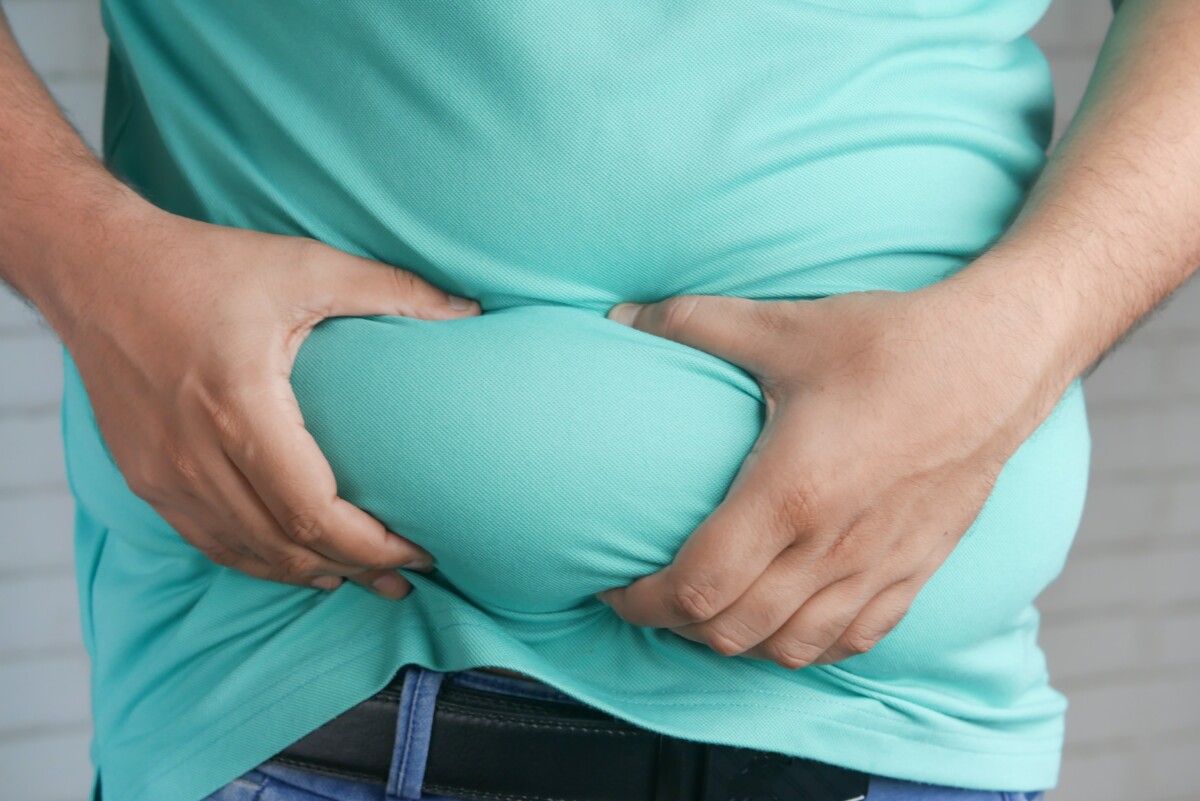Five symptoms reveal how much visceral fat you have stored in your body

Visceral fat is a hidden health problem that many people are unaware of because it is nothing you can see or touch like the subcutaneous fat under your skin.
Instead, visceral fat sits deep in your abdomen and surrounds your vital organs, which is a big concern because it can lead to serious health problems like stroke, diabetes, some cancers, and more. So how can you tell if you have visceral fat?
Visceral fat is found wrapped around vital organs such as the liver, pancreas and intestines. This type of fat is also called "hidden fat" because it is stored deep in the abdominal cavity and cannot be seen or drained. The reason why visceral fat wraps around these organs is because this type of fat acts as a cushion and protects these organs from damage.
They help to maintain the distance between these organs. However, too much visceral fat can cause inflammation and raise blood pressure, which would put you at greater risk of developing chronic diseases such as heart disease, stroke and diabetes.
When you increase your calorie intake, your body stores belly fat in several places. The blood vessels that perfuse the intestines pass through the so-called fat layer - the mesentery. As your weight increases, the mesentery becomes much thicker as your body stores fat there. Your intestines are covered internally by an apron of fat called the omentum that hangs from the transverse colon.
Usually on the thin side, the omentum can become much thicker as you increase the internal fat. Finally, visceral fat is deposited around the kidneys at the back of the abdomen. It's all visceral fat in the belly. Any increase in calorie intake can cause an increase in visceral fat. Sugary drinks and alcohol are cited as common culprits because they add calories to the diet but really have no clear nutritional value. We usually do not count our calorie intake accurately and it is not easy to eat a lot of calories in a short time.
Today, an increase in visceral or intra-abdominal fat is associated with weight. Patients at risk are those with a body mass index above 30. Body mass index, or BMI, is a correlation of weight and height and is generally an indicator of whether you are overweight. As your BMI increases, you begin to deposit fat around your intestines and elsewhere in your abdomen.
Increased abdominal fat is associated with increased cardiometabolic risk. As your waist increases due to increased belly fat, you have an increased risk of developing diabetes, high blood pressure and heart disease. Those diseases will shorten your life. For men, a waist increase of more than 40 inches and for women, a waist increase of more than 35 inches is associated with an increased risk of developing these diseases, it says "Eat This Not That".
Signs you have visceral fat:
Large waist circumference: This is one of the most obvious signs that someone has too much visceral fat. If your waist circumference is greater than 35 inches (for women) or 40 inches (for men), you probably have too much visceral fat.
High waist to hip ratio: This ratio is a good indicator of how much visceral fat you have. To calculate your waist to hip ratio, simply divide your waist measurement by your hip measurement. A ratio greater than 0,9 (for men) and 0,85 (for women) means you have too much visceral fat and are at higher risk of developing health problems.
High BMI: A BMI (body mass index) of 30 or more indicates you are obese, which may mean you have too much visceral fat.
Bulging belly: Another outward sign that you have too much visceral fat is if you have a so-called "beer belly." This happens when the stomach bulges due to excess visceral fat.
High blood pressure: Visceral fat is associated with higher blood pressure, so if your blood pressure is consistently high, it's a good indicator that you have too much visceral fat. Be sure to check with a doctor to rule out any other potential causes.


